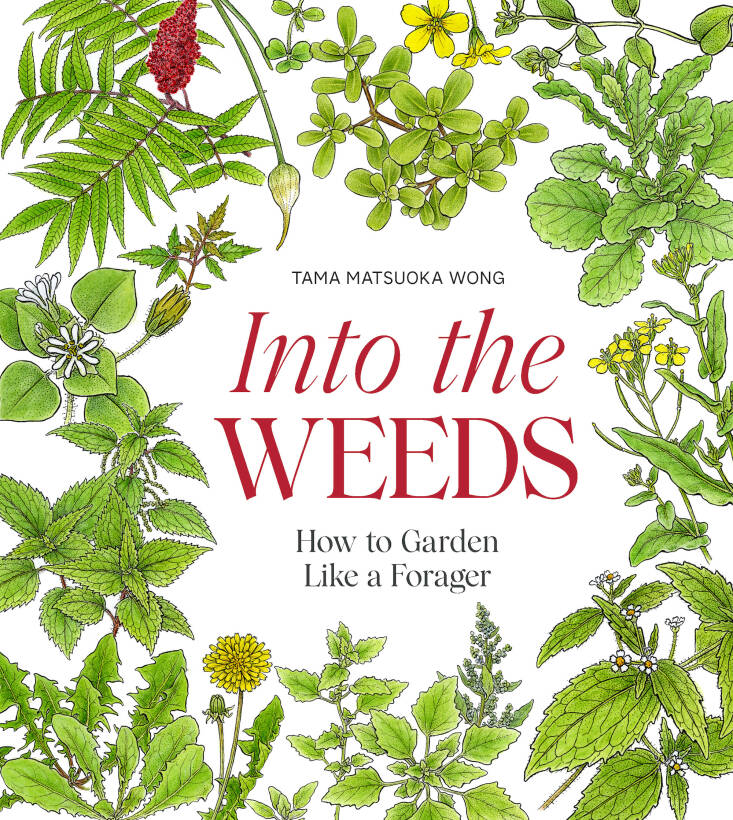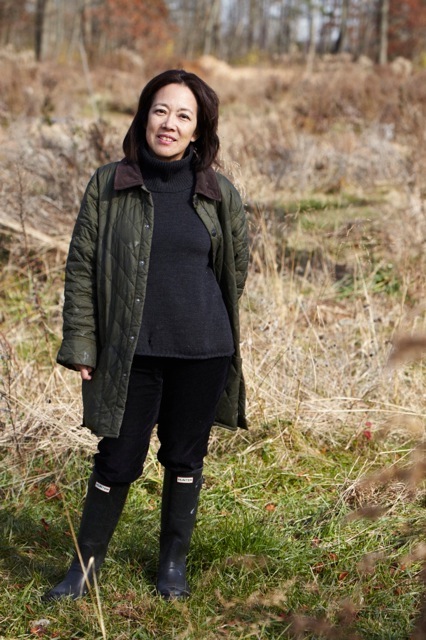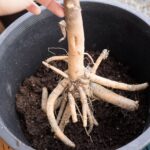How to Garden Like a Forager’
Rewilding doesn’t mean doing nothing.
According to Wong, rewilding your land means rethinking how we garden and seeing ourselves as stewards of the land. Instead of trying to tame the land, Wong listens to it and works with what nature has already set into motion, encouraging plants that she wants to keep, and editing out ones that are highly invasive or otherwise undesired.
Blur the boundaries.
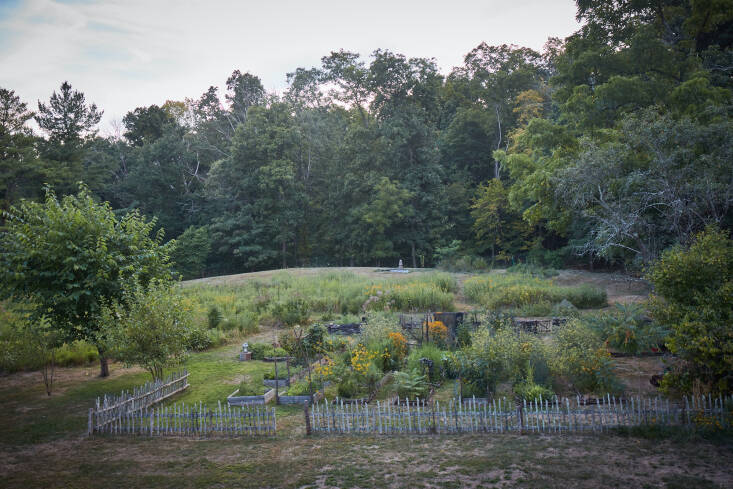
Looking out on Wong’s garden, it’s hard to tell where the garden ends and the wilderness begins–and that is intentional. “Instead of creating boundaries between wild and not wild, I like letting plants merge next to each other. I don’t need to impose hard lines demarking my garden, whether by hardscape, mulching, plastic weed control, or chemical eradication,” writes Wong of her approach to gardening.
But mark some edges.
While Wong lets the borders between her yard and the wild area get fuzzy, she purposefully marks boundaries around patches of wild plants that she wishes to keep. “Outlining these spaces can give a tiny bit of structure to a wild and sprawling garden, especially in the height of the season when things are growing like weeds,” says Wong.
Embrace wild wood.
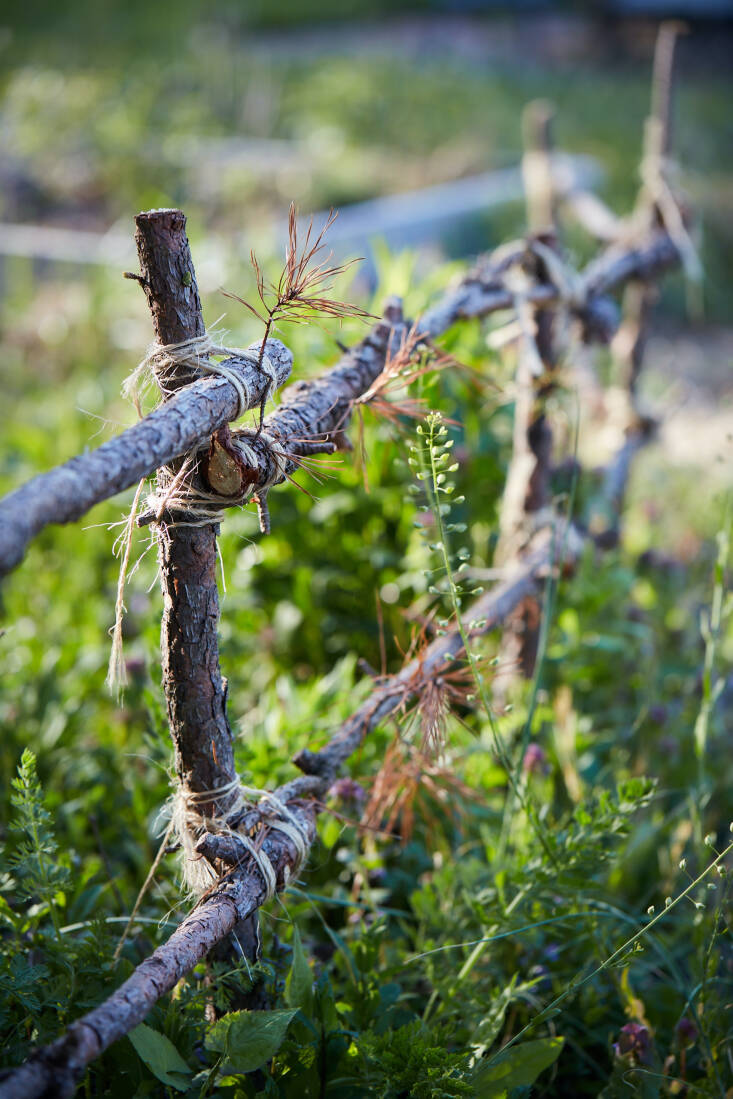
Instead of buying fencing at the home improvement store, Wong forages “wild wood” to make fences, borders, and gates in her garden, creating her own woven wattle and open-lashed edging using wood and vines found on her property. The wild wood is in harmony with her untamed aesthetic and will eventually nourish the soil when it breaks down—it’s also eminently affordable.
Rethink your vegetable beds.
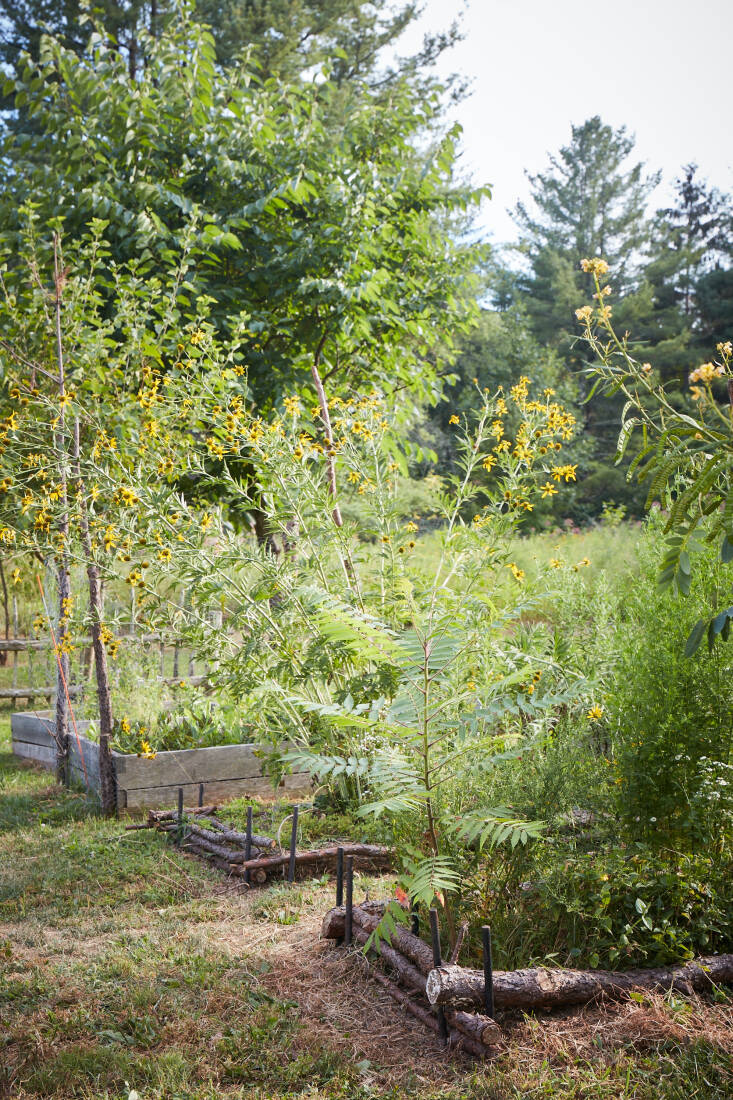
Wong cultivates many edible plants in beds, but she mixes them with two types of wild plants: Familiar foraging plants and native plants that are not edible but add other benefits, like milkweed and mountain mint. “These beds are a dazzling array of diversity,” she writes. “A mixed blend of natives and nonnatives, perennials, annuals, and biannuals.”
While Wong admits her forager’s approach to gardening is unconventional, she also believes that as weather becomes more extreme and unpredictable, it will be more difficult to maintain large areas in a maintained, manicured way. “I think this is where things are heading, but for now, it’s for people who are kind of like me—they’re frustrated, failed gardeners,” Wong says. “This book is for the people that can’t garden the way garden books are supposed to inspire us to garden.”
For more recently published books to check out, see:
(Visited 2 times, 1 visits today)


